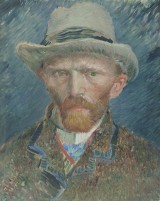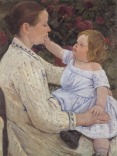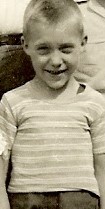From the time I was a little boy watching mystery movies I’ve waited for the first clue. From that point on the solution is just a matter of time. All fates are sealed with that clue. I will watch movies over and over, waiting for that definitive clue. And then I’m thrilled. In the same way, I can’t think of any time in my life I haven’t been intrigued by those events in peoples’ lives that started them on the course that would define them as human beings—the Turning Points in their lives. The first clue.
Why were they this and then became that? What happened? I would like to know. That’s true now of artists whose lives fascinate me—writers, painters, sculptors, actors, ballet dancers, composers, musicians. Was it a lucky break or a bad break? A triumph or a failure? An illness? A significant man or woman? A teacher? A lover? A walk on a beach? A birth, a death?
If you and I were ever to meet–how nice that would be–I’d ask you about yours. I think you would tell me that after the Turning Point you knew right  away you’d never be the same. You were facing in a new direction. Winds picked up and caught your sails and you set out to sea. You were on a quest and were experiencing the pouring-out of floods of creative thoughts. You’re confident that your quest is still leading to something though you might not be aware yet just where it will take you. You will have to see.
away you’d never be the same. You were facing in a new direction. Winds picked up and caught your sails and you set out to sea. You were on a quest and were experiencing the pouring-out of floods of creative thoughts. You’re confident that your quest is still leading to something though you might not be aware yet just where it will take you. You will have to see.
American Nobel Prize dramatist EUGENE O’NEILL’S Turning Point was a life-threatening illness. The son of a rich and famous actor, he quit college after a year, worked as a deck hand on ocean-going ships, drank heavily in various ports, and dissipated his life.
Then he experienced his Turning Point: “I just drifted along till I was twenty-four and then I got a jolt and sat up and took notice. Retribution overtook me and I went down with T.B. It gave me time to think about myself and what I was doing—or, better, wasn’t doing. I got busy writing one act plays…If I hadn’t had an attack of tuberculosis, if I hadn’t been forced to look at myself, while I was in the sanitorium, harder than I had ever done before I might not have become a playwright.” He would, he said, “Become an artist or nothing.” From that point on, his life was centered on, focused on, and organized around writing plays.
Writer RAYMOND CHANDLER’S Turning Point was getting fired from a high-paying executive job. For many years he drifted from job to job. He started in  business as an accountant and rose to the ranks of the director of eight oil corporations. He was called by some the best businessman in America. He drank so heavily that he started going off on his own on binges without telling anyone for weeks at a time and eventually was fired– the worst crisis of his life.
business as an accountant and rose to the ranks of the director of eight oil corporations. He was called by some the best businessman in America. He drank so heavily that he started going off on his own on binges without telling anyone for weeks at a time and eventually was fired– the worst crisis of his life.
But while driving along California’s Pacific coast to a cabin where he planned to figure out what to do now, he stopped at a gas station and picked up reading material: copies of Black Mask, a magazine of hard-boiled detective stories. Reading them, he decided that he could write stories as good as those, and that’s what he did, starting a writing career at age 44 that saw him establish himself as probably the greatest writer in that genre.
Self-taught VINCENT VAN GOGH’S Turning Point was reading a particular book. Before deciding to devote himself to art he wrote to his brother Theo: “I quite well remember that when you spoke at the time of my becoming a painter, I thought it was very impractical and would not hear of it. What made me cease  to doubt was my reading a clear book on perspective, Cassagne’s Guide to the ABC of Drawing and a week later I drew the interior of a kitchen with a stove, chair, table and window, in their place and on their legs, while before it had seemed to me witchcraft or pure chance to get depth and the right perspective in drawing. If you had only drawn one thing right, you would feel an irresistible longing to draw a thousand other things.”
to doubt was my reading a clear book on perspective, Cassagne’s Guide to the ABC of Drawing and a week later I drew the interior of a kitchen with a stove, chair, table and window, in their place and on their legs, while before it had seemed to me witchcraft or pure chance to get depth and the right perspective in drawing. If you had only drawn one thing right, you would feel an irresistible longing to draw a thousand other things.”
Many creative people have Turning Points in childhood. They fall in love with some activity. Children who know what they are in love with and are pretty  sure what they will be when they grow up are likely to be creative as adults.
sure what they will be when they grow up are likely to be creative as adults.
At the age of eight Nobel writer SAUL BELLOW was hospitalized for half a year in the children’s ward. With boys and girls dying all around him he decided that his own survival was a near miracle; that he was “privileged” and that there was some form “of bookkeeping going on.”
He did his own mental bookkeeping and decided he “owed something to some entity for the privilege of surviving.” He believed he had “better make it worth the while of whoever it was that authorized all this.” In his twenties he turned to writing and went on to achieve all the highest literary awards. Until he died he thought it possible that he had “gotten away with something but that it had been by permission of some high authority.”
Short story specialist/poet RAYMOND CARVER’S Turning Point was meeting a teacher– being taught at the Iowa Writers Workshop by John Gardner and  being affected profoundly. Carver said that whatever Gardner had to say “went right into my blood stream and changed the way I looked at things…He took my stories more seriously… I was completely unprepared for the kind of criticism I received from him.”
being affected profoundly. Carver said that whatever Gardner had to say “went right into my blood stream and changed the way I looked at things…He took my stories more seriously… I was completely unprepared for the kind of criticism I received from him.”
Gardner taught Carver to be tough on himself, showing what is best about all good teachers. Through them you learn to adopt an objective critical attitude toward your work. You learn “taste.” At that point Carver and his wife Maryann shared the goal of Raymond not selling out his writing and not have him get involved in any career but writing. Not to forget that he was put on earth to be a great writer and for no other reason.
MARY CASSATT’S Turning Point midway in her paining career was the result  of a sequence of Turning Points: living in Paris, mingling with the French Impressionists, especially Edgar Degas, and becoming an Impressionist herself. But the single most important turning point for Cassatt was finding her true subject: mothers with their children.
of a sequence of Turning Points: living in Paris, mingling with the French Impressionists, especially Edgar Degas, and becoming an Impressionist herself. But the single most important turning point for Cassatt was finding her true subject: mothers with their children.
ERNEST HEMINGWAY’s Turning Point was deciding a college education wasn’t for him and landing a job as a journalist on the Kansas City Star. Over the years the “Stars” editors had complied a book of 110 rules designed to force reporters to  use simple, plain, direct, cliché-free English, and those rules were strictly enforced. Hemingway’s writing style that revolutionized the way writing is done across the globe, was based on those very rules. He later called them, “the best rules I ever learned about writing.” He showed the first cable he ever wrote to fellow writer Lincoln Steffens and said, “Steffens, look at this cable: no fat, no adjectives, no adverbs…It’s a new language.”
use simple, plain, direct, cliché-free English, and those rules were strictly enforced. Hemingway’s writing style that revolutionized the way writing is done across the globe, was based on those very rules. He later called them, “the best rules I ever learned about writing.” He showed the first cable he ever wrote to fellow writer Lincoln Steffens and said, “Steffens, look at this cable: no fat, no adjectives, no adverbs…It’s a new language.”
Novelist THOMAS WOLFE’S Turning Point was submitting his first novel to Maxwell Perkins and Perkins becoming his editor. Perkins was the most acclaimed book editor of the twentieth century and thus far in the twenty-first. During the 1920s and 30s his Scribner’s writers included the greatest and most gifted working with one editor in the history of American publishing. They included, in addition to his protégé Wolfe, Ernest Hemingway, F. Scott Fitzgerald, and Ring Lardner. Wolfe’s association with Perkins is the most celebrated author/editor relationship in American literature.
Wolfe was stupendously talented. But his main problems were his uncontrollable, obsessive verbosity and a chronic inability to cut that resulted in unedited manuscripts of fantastic lengths, three or four times longer than a publishable book could possibly be.
Those problems in turn were caused by Wolfe’s difficulty making any kind of  independent decisions. He didn’t know where or what to cut. He would stare for hours at the manuscript before eliminating a few sentences when his agreement with Perkins was that he would strike out tens of thousands–a hundred thousand—words. He would start by rereading the manuscript section by section, trying to find things that were unnecessary and could be omitted. But he was totally blind to them. He never in his entire career had a concept of a publishable book.
independent decisions. He didn’t know where or what to cut. He would stare for hours at the manuscript before eliminating a few sentences when his agreement with Perkins was that he would strike out tens of thousands–a hundred thousand—words. He would start by rereading the manuscript section by section, trying to find things that were unnecessary and could be omitted. But he was totally blind to them. He never in his entire career had a concept of a publishable book.
The day before Christmas, 1929 Wolfe wrote to Perkins: “One year ago I had little hope for my work, and I did not know you…. You are now mixed with my book in such a way that I can never separate the two of you. I can no longer think clearly of the time I wrote it, but rather of the time when you first talked to me about it, and when you worked upon it….You have done what I had ceased to believe that one person could do for another–you have created liberty and hope for me.” Wolfe wrote a note to Perkins: “In all my life, until I met you, I never had a friend.”
I doubt there’s ever been a great creator who after a Turning Point didn’t have a powerful sense of single-mindedness and an ability to persevere, face difficulties, and concentrate on reaching goals while resisting distractions.
And rarely, if ever, wandering off on tangents. High-powered focused attention is a result of Turning Points–the ability of the creator to be absorbed, caught up in, and wholly involved in his/her creative existence.
Do you remember your Turning Point? Just look up from the screen now and reflect on when the first clue appeared in the mystery you call your life and you turned from this direction to that.
© 2016 David J. Rogers
For my interview from the international teleconference with Ben Dean about Fighting to Win, click on the following link:
Order Fighting to Win: Samurai Techniques for Your Work and Life eBook by David J. Rogers
or
Order Waging Business Warfare: Lessons From the Military Masters in Achieving Competitive Superiority
or







